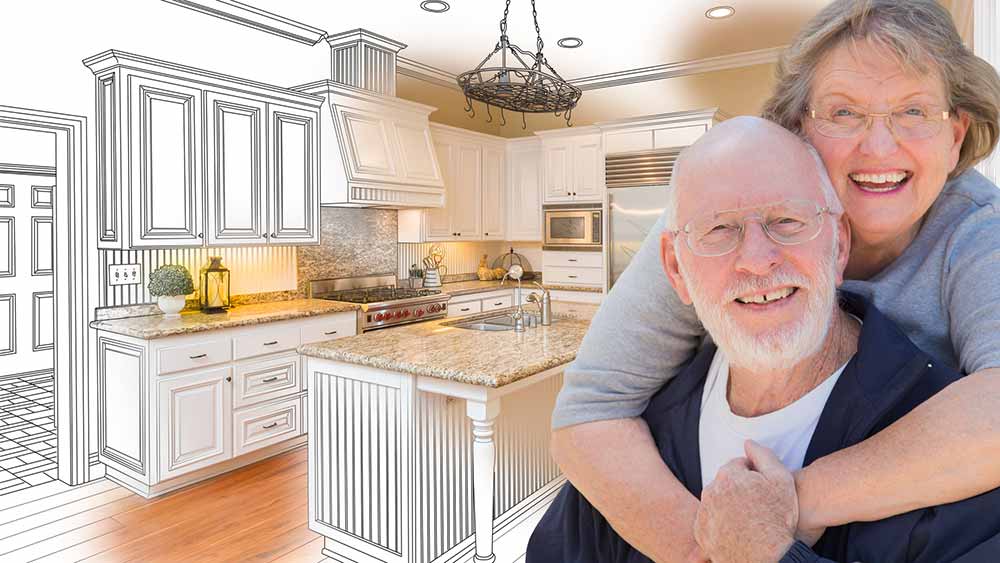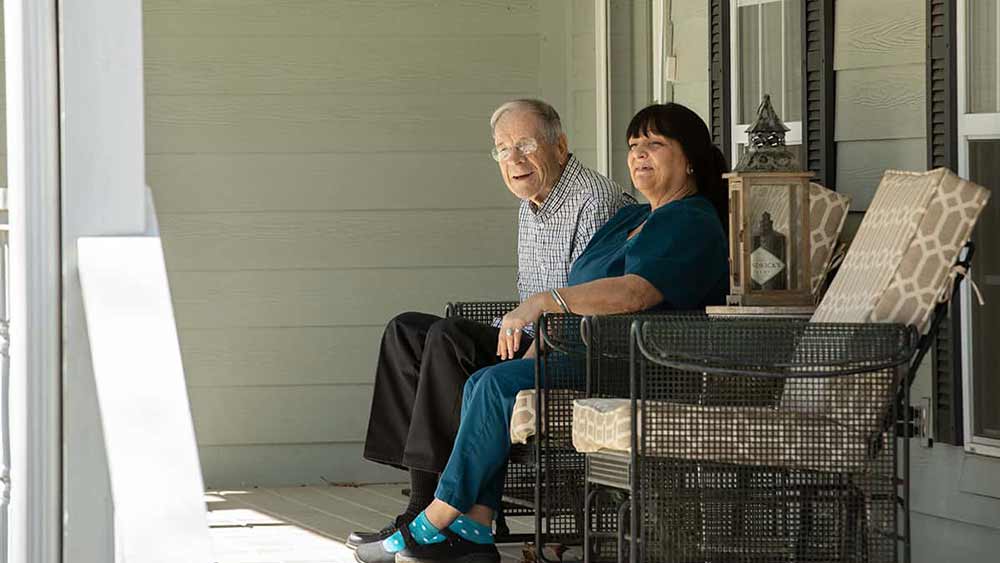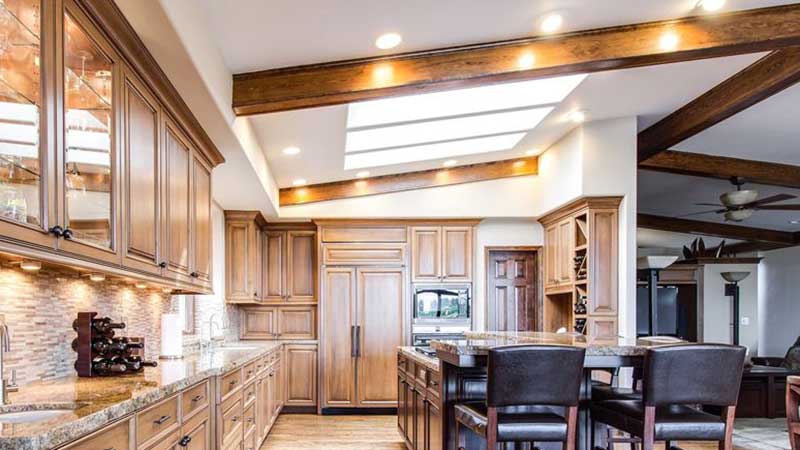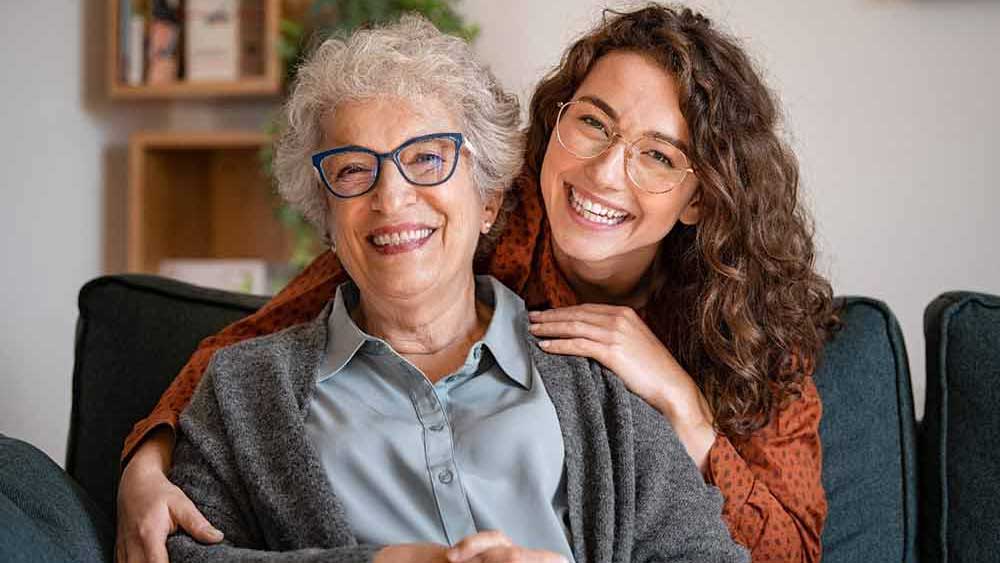

Adapting the Home When a Loved One Has Alzheimer’s Disease
June is Alzheimer’s and Brain Awareness Month, as well as National Safety Month, making it a great time to raise awareness of home safety for people with dementia.
Today, 5 million people in the U.S. are living with Alzheimer’s disease, and that number is expected to triple within the next few decades. Memory care facilities can support the needs of many seniors with dementia, but most would prefer to stay at home as long as possible, in familiar surroundings that are tied to their memories. Many families, too, express the preference for keeping their older parent, spouse or other loved one with dementia at home. But they wonder whether that home will continue to meet their loved one’s needs.
If your loved one has Alzheimer’s disease or a related condition, learn about creative adaptations that can make the home a better fit as your loved one experiences changes in thinking, memory, behavior and abilities.
The goal is to keep your loved one safe while simultaneously preserving their sense of independence. A safer, more appropriate home environment can mean that family caregivers spend less time overtly imposing limits on their loved one, and that’s good! Experts say home modifications are an important nonmedical approach for preventing and managing common dementia-related changes such as wandering, sleep problems, rummaging, agitation and hallucinations.
A more dementia-friendly living environment
As the disease progresses, changes in the brain may cause your loved one to misinterpret sounds, objects, and the things people say—or to completely imagine things that aren’t there. Experts advise improving lighting to remove shadows and glare that could be perceived as frightening. Remove mirrors if they confuse your loved one. Solid-color walls are better than patterns, which might cause illusions. Add labels and signs around the house—people with Alzheimer’s are usually able to read until late in the disease.
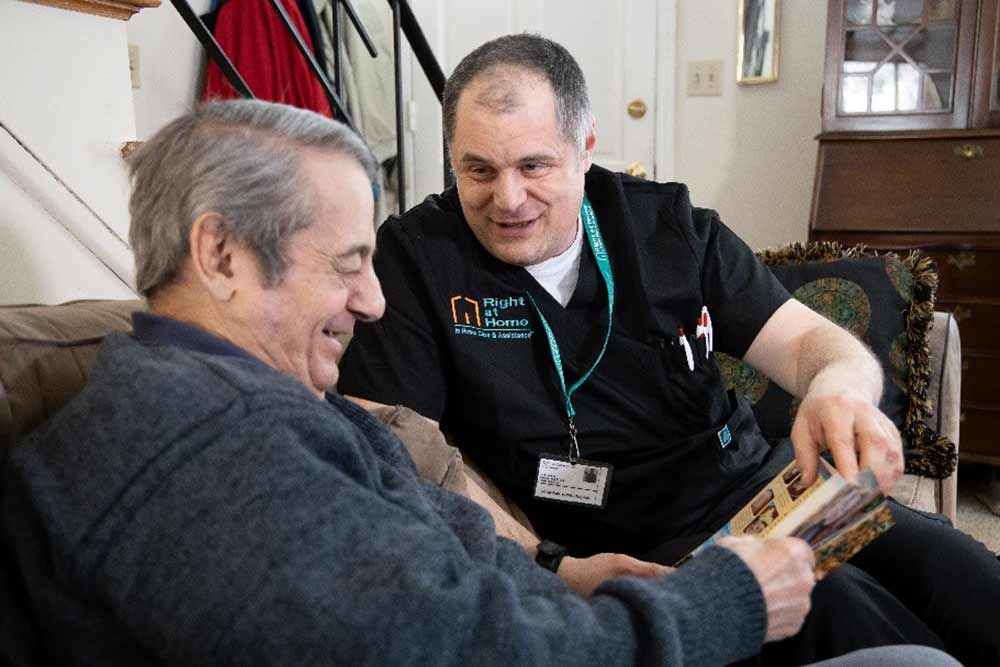
If your loved one “rummages”—searching compulsively through drawers and cabinets, perhaps hiding things, keep items out of reach that could be damaged or misplaced, such as the TV remote, phones and valuables. Then, create a special drawer or “treasure chest” where your loved one can access items they enjoy and consider precious. Rummaging often is caused by boredom, so be sure your loved one is getting appropriate mental stimulation.
Modifications to make the home safer for your loved one
Some of these modifications will most likely require professional assistance, but you can do many on your own, at a reasonable cost. You can obtain some of the safety devices described below from a medical supplies dealer or hardware store. And while your loved one is not a child and should not be treated as such, many child safety products also protect people with dementia. Home safety goals include the following:
Limit access to dangers. As your loved one’s thinking and memory change, some items and activities around the house are no longer safe. Keep the car keys out of reach if your loved one should no longer drive. Remove or secure guns. Equip electrical outlets with childproof covers. Keep plastic bags out of reach. Disconnect the garbage disposal. Remove or lock up scissors, small blades, knives and other sharp objects.
Prevent falls. The brain changes of dementia reduce awareness of fall risks. Visual perception and the sense of balance can be affected. Dementia also makes it harder for your loved one to stop a fall that is about to happen—to grab a handrail, or steady themselves when they are off balance. Remove clutter and tripping hazards, such as throw rugs. Rearrange the home to create more open space. Add grab bars in the bathroom, and sturdy handrails to both sides of stairs. Use a gate across stairs if it’s not safe for your loved one to navigate them alone.
Protect against poisoning. Keep cleaning products, medications and bath products out of your loved one’s reach. Remove poisonous plants. Be alert for inedible items that your loved one might mistake for food. For example, poison control experts warned that people with dementia have been injured and have even died after consuming colorful dishwasher and laundry detergent pods. And keep the poison control number within easy reach, just in case.
Keep your loved one from getting lost. Wandering is the greatest fear of many families whose loved one has dementia. To keep your loved one from leaving home unaccompanied, install special locks on doors, safety gates to prevent exit, and an alarm that will sound if the front door is open. Add loosely fitted doorknob covers so that the cover turns instead of the actual knob. (To preserve an emergency exit, use these only when someone else is present in the home.) Install devices to keep windows from opening all the way. Create visual cues to disguise the door, or place a “stop” or “do not enter” sign on the door.
Reduce the risk of fires and burns. Certain things may no longer be safe for your loved one to do without supervision, such as cooking, bathing, smoking, and using heaters and electric blankets. Install safety knobs on the stove, and keep smoking materials out of reach. Remove all flammable substances. Set the hot water heater at 120° F. Place red tape around radiators and other heating devices to remind your loved one of the danger.
Home assistance for an extra measure of safety
As important as it is to modify the home, nothing can replace watchful supervision and the human touch.
The time will come when it is no longer safe to leave your loved one alone. Talk to your loved one’s doctor about your options.
Professional in-home care can be the key to keeping loved ones with dementia home longer. A professional caregiver can help keep the home safe and assist your loved one with bathing, dressing, grooming and other personal care. They can prepare meals, help your loved one eat, provide companionship and appropriate activities for mental stimulation, and even take your loved one on outings.
Preserving your loved one’s sense of independence and keeping them socially active in this way improves their all-around health, decreases sleep disturbances, and may even slow the progression of their condition. Remember to hire through an agency, like Right at Home, that provides dementia-care training for their caregivers.





